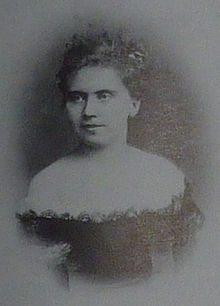
Eduard Friedrich Mörike was a German Lutheran pastor who was also a Romantic poet and writer of novellas and novels. Many of his poems were set to music and became established folk songs, while others were used by composers Hugo Wolf and Ignaz Lachner in their symphonic works.
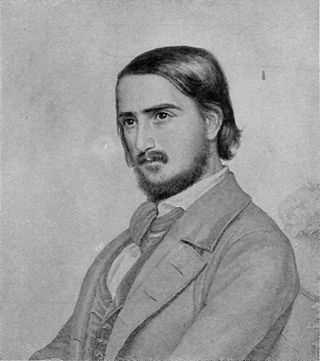
Georg Friedrich Rudolph Theodor Herwegh was a German poet, who is considered part of the Young Germany movement.
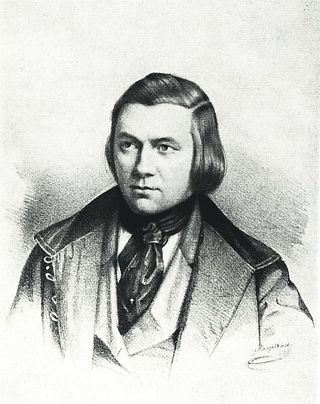
Hermann Kurz was a German poet and novelist.

Georg Rudolf Weckherlin was a German poet and diplomat. Influenced by the French La Pléiade, his poetry introduced Renaissance forms and themes previously unknown in German verse.
Kurz is a surname. It most commonly refers to Sebastian Kurz, a former Austrian politician who twice served as chancellor of Austria.
Lamprecht, called der Pfaffe, was a German poet of the twelfth century. He is the author of the Alexanderlied, the first German epic composed on a French model.
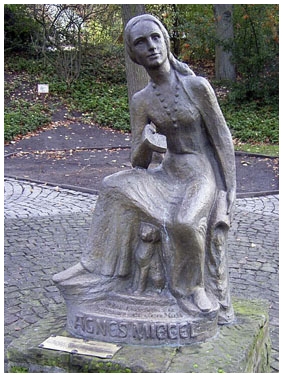
Agnes Miegel was a German author, journalist and poet. She is best known for her poems and short stories about East Prussia, but also for the support she gave to the Nazi Party.

Marie Luise Kaschnitz was a German short story writer, novelist, essayist and poet. She is considered to be one of the leading post-war German poets.
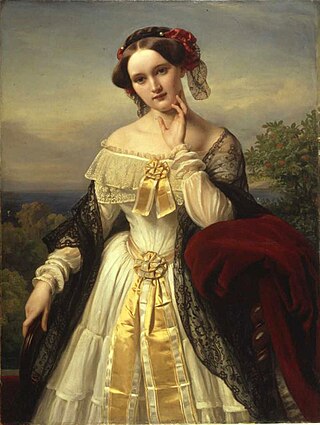
Agnes Mathilde Wesendonck was a German poet and author. The words of five of her verses were the basis of Richard Wagner's Wesendonck Lieder; the composer was infatuated with her, and his wife Minna blamed Mathilde for the break-up of their marriage.

Stine Andresen (1849–1927) was a German poet from the North Frisian island of Föhr. Her lyrics often refer to her native island. In addition to poems in German, she wrote some poetry in Fering North Frisian.
Gertrud Käthe Chodziesner, known by the literary pseudonym Gertrud Kolmar, was a German lyric poet and writer. She was born in Berlin and was murdered, after her arrest and deportation as a Jew, in Auschwitz, a victim of the Nazi's "Final Solution". Though she was a cousin of Walter Benjamin, little is known of her life. She is considered one of the finest poets in the German language.

Ingeborg Drewitz was a German writer and academic.

Anna Ritter was a German poet and writer.
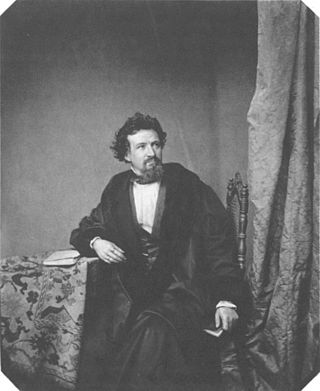
Hermann Lingg was a German poet who also wrote plays and short stories. His cousin, Maximilian von Lingg, was Bishop of Augsburg.

Karl Krolow was a German poet and translator. In 1956 he was awarded the Georg Büchner Prize. He was born in Hanover, Germany, and died in Darmstadt, Germany.
Kurtz or Kurz is a surname first found in Switzerland. It is mainly a German and Jewish (Ashkenazic/Yiddish) surname, meaning someone who is short in height. It comes from the German word 'kurz' meaning 'short'.
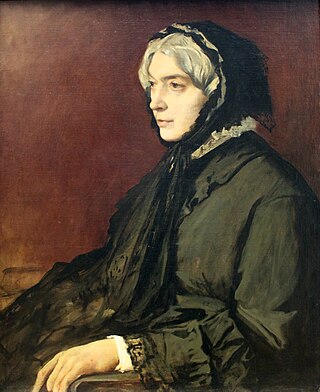
Henriette Feuerbach was a German author and arts patron. She was the wife of Joseph Anselm Feuerbach and the stepmother of painter Anselm Feuerbach, whom she supported in his art.

Elke Erb is a German author-poet based in Berlin. She has also worked as a literary editor and translator.
Elisabeth Gerdts-Rupp was a German jurist, lyric poet and a respected ethnologist.
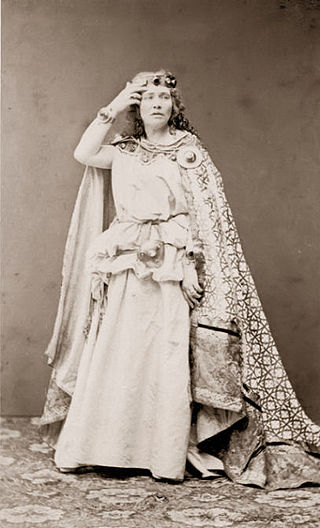
Isolde is a German feminine given name derived from either the Old High German words īs ("ice") and hiltja ("battle"), or the Brythonic adsiltia. The name was further popularized in Germany and German-speaking countries following the opera Tristan und Isolde composed by Richard Wagner between 1857 and 1859, and based on the 12th-century chivalric romance Tristan and Iseult. Wagner subsequently had a daughter in 1865, who was named Isolde von Bülow.
